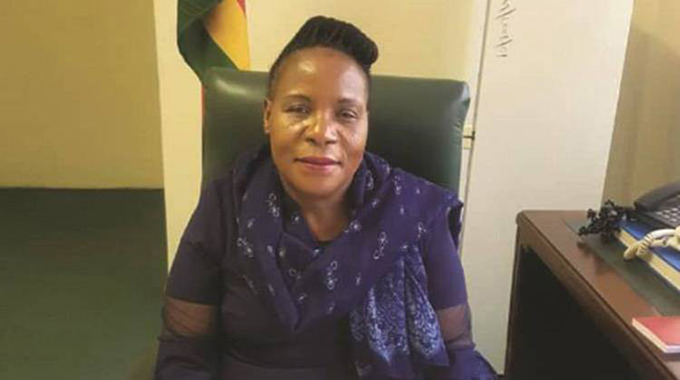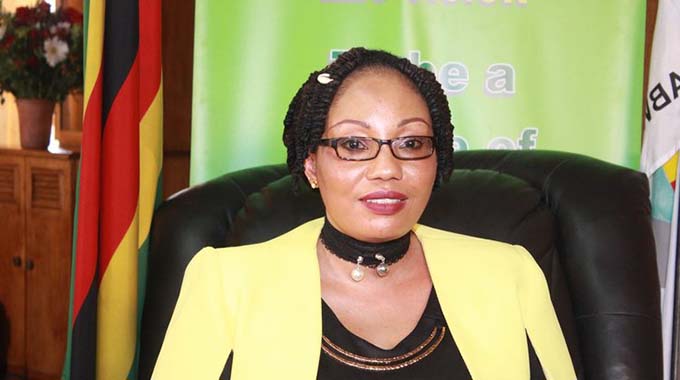Young farmer breaks cycle of poverty in Chiredzi

Lyn Munjanja recently in Chiredzi
Standing next to his young wife, Officer Mashamba is evidently over excited as he watches a convoy of delegates arriving at his homestead in Rupangwana Village, Chiredzi.
The delegation includes senior Government officials, members from European Union (EU), government of Sweden, Foreign Commonwealth and Development Office (FCDO), the United Nations Development Programme (UNDP) and the media.
One can instantly tell that his wonderful projects and hard work had made this respectable team visit and witness for themselves.
Mashamba is a young farmer aged 29 who is utilising the various trainings that UNDP ZRBF ECRAS project has provided in terms of business management, market linkages and fish farming enterprise establishment.
In addition, he was supported with a bicycle as he was a community volunteer that supported other members with trainings and business mentoring.
He has a well-established horticulture enterprise where he produces a variety of crops for both domestic and marketing.
As he narrated his story, almost everyone was inspired by his dedication and hard work at such a tender age and also at how he had started out his project.
“I dropped out of school in 2017 after my father failed to pay my school fees. I could not continue attending school because they only accepted those who had paid.
“I came back home and I did not know where to start because I did not have any resources or money to start up a business. I only land, water and a pump so I thought of starting a farming project.
“I started on a 0.1 hectare of tomatoes but by then I only intended to get money for survival. I did not have any big pans in mind.
“One thing led to another and it became something which was very serious.
“In 2020 that is when I joined ECRAS after the ward co-ordinator approached me on the project that was being spearheaded by ECRAS to youths in agriculture.
“We received training on a number of issues including value addition, food preservation, such that you can sell in seasons when that product won’t be available,” he said.
The trainings made Mashamba realise his potential to grow bigger and take farming as a serious business.
“I started off on a 0,1 hectare of land and now I have grown to 2,6 hectares.
“In 2018 when I started my project, I made US $200 profit then in 2019 I dropped to US$150. The loss was due to lack of knowledge.
“After receiving training, I made a profit of US$600 in 2020 and US$1 400 in 2021.
“These profits have helped me to scale up my production. I hope that after five years we will be farming at least 100 hectares.
“ZRBF helped us construct our fish ponds. They paid 80 percent of all expenses while we were only left to cover 20 percent. The total cost was US$900.
“So now we are doing fish farming, and growing crops like maize, cabbages, vegetables and tomatoes for sale.
“We want to buy solar systems for irrigation as petrol is proving to be expensive. We use solar pumping system and drip irrigation. It is an advantage because there is no need for us to be physically present.
“The community is also benefiting as it now has access to fresh produce. I have also employed three casual and two permanent workers,” he said.
Mashamba also encouraged youths to be hard-working and erase the idea that working in other countries was the only way to get money.
“A lot of young people in Zimbabwe have the mentality that you have to go overseas for better opportunities but we actually encouraged them that there are better projects locally that can improve someone’s livelihoods.
“I gave them my example that I am a school dropout but I am doing something tangible.
“Some youths who have been trained are now into poultry and baking,” he said.
Mashamba also received trainings on horticulture production, nutrition sensitive agriculture (organic farming), food preservation and value addition, business skills, entrepreneurship and record keeping, post-harvest management training, food preservation and value addition, village savings and lending, indigenous chicken production, small livestock production, mobile development service.
Lands, Agriculture, Fisheries, Water and Rural Development Deputy Minister Vangelis Haritatos said he was impressed by how hard-working and dedicated Mashamba was to his project and also encouraged him to finish his education because it was important to have his papers in order.
“I am very happy by the progress that we have seen in this homestead and I am very glad that you are a hard-working man.
“I encourage you to finish up your projects using your projects because it is very important to be having your papers in place. You never know what opportunities might come by.
“We really appreciate what you have done because we want youths who think outside the box. You also have to understand that farming is a business hence if you are now in it you now have to devote your time to it because you cannot be a cell phone farmer and think money will come on its own.
“Never keep your knowledge to yourself, you have to spread your legacy and share information with others and I am very happy that you are doing that. You have made us proud and we are very proud of you “he said.
Mashamba’s wife, Unity Magadze said ever since her husband started his project she would complain during the first days because most of his attention was now on his projects. She has however started helping out and is enjoying it.
“When we got married a few years back, we used to spend a lot of time together and this meant a lot to me but my husband was always stressed because he did not have enough resources to take care of us.
“When he eventually started farming, a first I complained that all his attention was now on his projects because he seemed dedicated to them. I started helping out here and there and when he received his trainings, finally his efforts have brought us here. I am very grateful because these projects have made us to be independent as we no longer depend on anyone for anything,” she said.
The UNDP Zimbabwe Resilience Building Fund (UNDP-ZRBF) is a long-term resilience initiative that has been operating in Zimbabwe for the last seven years.
The programme operates in 18 of the most vulnerable districts of Zimbabwe, chosen through in-depth hazard mapping.
The programme is implemented by seven consortia made up of international and local NGOs, research institutes, academia and private sector players.
The consortia work closely with the Ministry of Lands, Agriculture, Fisheries, Water and Rural Development and other key government ministries and departments and is funded by the European Union (EU), Government of Sweden, Foreign Commonwealth and Development Office (FCDO), and the United Nations Development Programme (UNDP).
Enhancing Community Resilience and Sustainability(ECRAS) project which is part of the Zimbabwe Resilience Building Fund (ZRBF), a multi donor fund established by the Government of Zimbabwe through the Ministry of Lands, Agriculture, Water, Fisheries and Rural Resettlement and UNDP is aiming to increase the capacities of communities to sustain development gains and achieve improved well-being outcomes in the face of shocks and stresses.
In rural Zimbabwe, where rain-fed agriculture supports four out of five people, complex and interconnected shocks and stresses, from increasingly variable rain to economic volatility, can devastate communities, undermining their ability to care for and invest in their families.
Through an innovative set of investments in resilience, ZRBF is working to break these cycles of poverty and food insecurity entrapping the country’s most vulnerable communities.










Comments